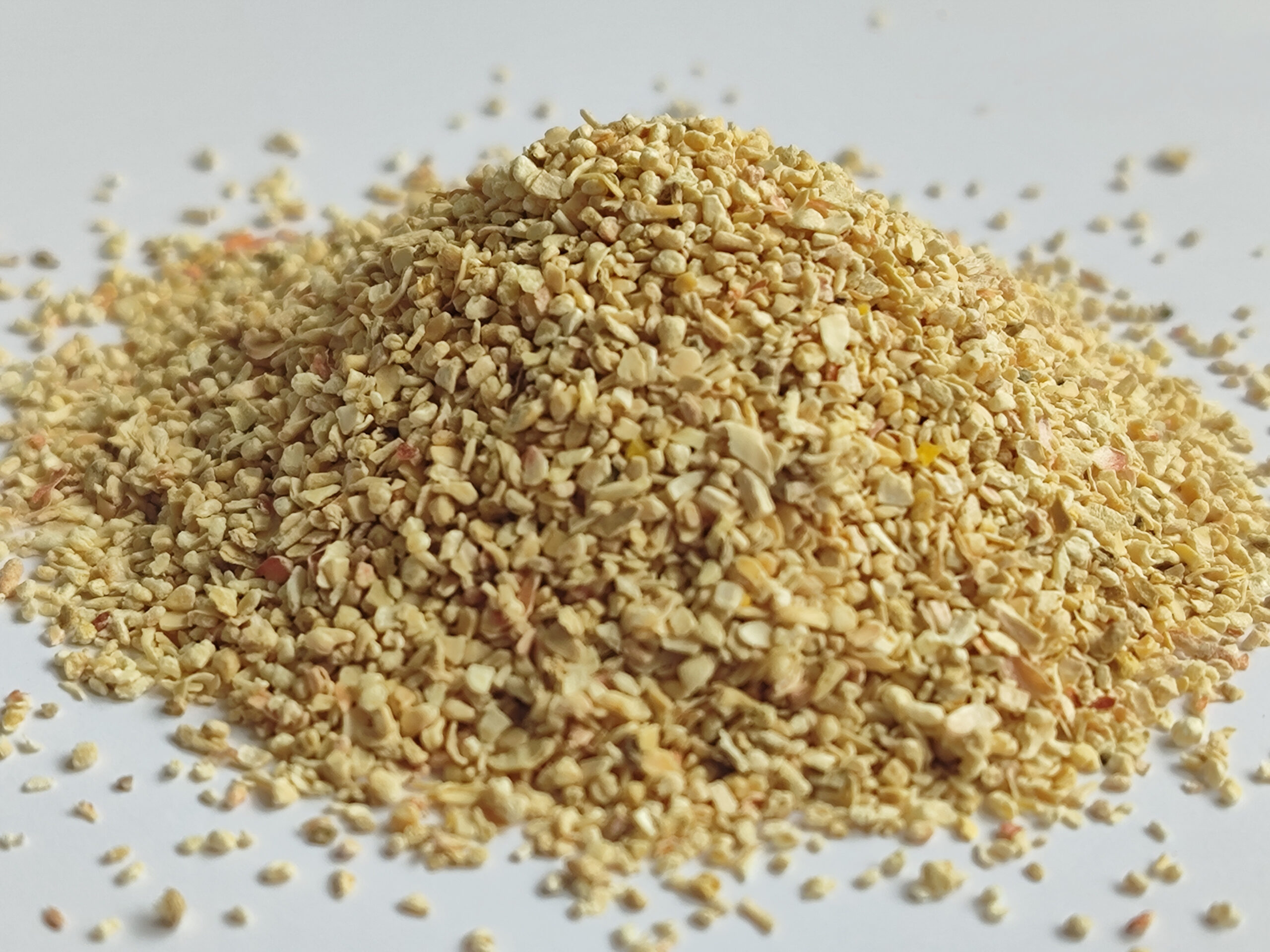The main use of corncob is as abrasive. The method of processing corncob abrasive is as follows:
Rough processing: Control the moisture content of corncob at 12%-18%, and process it into particles with a diameter of 5-10mm after collision and grinding by equipment.
Material separation: Separate the particles from the bran by air separation, and the particles are semi-finished products.
Deep processing: Extrude the semi-finished products into thin sheets with a thickness of 2-2.5 mm, and then use mechanical impact, shearing and friction to break the thin sheets into smaller particles and fine bran.
In summary, corncob, as an environmentally friendly and economical natural material, shows a wide range of application prospects in polishing, adsorption, planting and other fields. Its unique physical structure and chemical properties make it a green material that has attracted much attention.
What are the application ranges of corncob
Corncob has a wide range of applications, and the following are some of its main uses:
Polishing abrasive:
Corncob is widely used in the polishing and drying of glasses, buttons, electronic components, automotive parts and magnetic materials. Its surface treatment effect is remarkable, which can improve the brightness and finish of the processed parts.
Biological materials:
Since corn cobs are rich in cellulose, hemicellulose and lignin, they have been used in industries such as papermaking and biosugar production.
Environmental protection:
Corn cobs can be used to extract heavy metals from wastewater and help prevent hot thin steel sheets from sticking.
Building materials:
It can be used to make cardboard, cement boards and cement bricks, and can also be used as a filler for glue or paste.
Rubber additives:
Adding corn cobs to tire manufacturing can increase the friction between the tire and the ground, improve traction, and extend the service life of the tire.

Feed additives Additives:
Corn cobs can be used as premixes, veterinary drug additives, nutritional carriers, etc., and are widely used in animal feed.
Edible fungus cultivation:
In the edible fungus cultivation industry, corn cobs are an indispensable raw material, especially in the domestic market where large quantities are exported to South Korea and Japan.
Oil adsorption:
Corn cobs can be used to adsorb oil stains on the sea, water and ground, and are suitable for cleaning oil stains on machinery.
Pet bedding:
Corn cobs are often used as pet bedding, and their good water absorption and environmental protection properties are popular.
Through these applications, corn cobs have demonstrated their versatility and environmental protection advantages in many fields.
What are the specific applications of corn cobs in automotive parts?
Corn cobs have the following main applications in polishing automotive parts:
Polishing of automotive parts
Corn cobs are widely used in polishing automotive parts, such as surface polishing of metal parts such as engine covers, doors, and wheels. Corn cobs have the characteristics of uniform structure, moderate hardness, and good toughness. They can effectively remove the oxide layer and dirt on the surface of parts and improve the surface finish. After polishing, the surface brightness of the parts is high and there are no traces of water marks.
Used with polishing equipment
Corn cobs can be divided into large, medium and small sizes, and can be used with vibration polishing equipment, centrifugal polishing equipment, etc. In the polishing machine, corn cobs can fully reach the corners, gaps and other difficult-to-reach parts on the surface of the parts to achieve a comprehensive polishing effect.
Drying treatment
Corn cobs have strong water absorption and are also suitable for drying treatment in the polishing process of automotive parts. Used with a vibration dryer, corn cobs can quickly absorb the residual moisture on the surface of the parts, and can also erase minor scratches and water marks on the surface. In summary, corn cobs, as an environmentally friendly and economical natural polishing abrasive, show unique advantages in the processing of automotive parts. Its good polishing effect and water absorption make it an ideal choice for the automotive manufacturing industry.
